http://tuxgraphics.org/electronics
Smartphone garage door opener![[Illustration]](../../common/images2/article11041/title.jpg)
Abstract:
Nobody leave these days the house without keys and mobile
phone. Wouldn't it be nice if you could use your mobile
phone to open or close the garage door?
No extra garage door opener device. Just use you mobile phone!
|

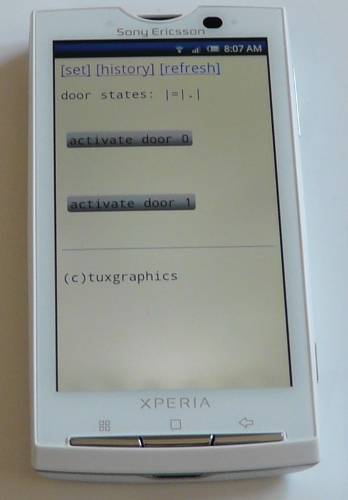
|
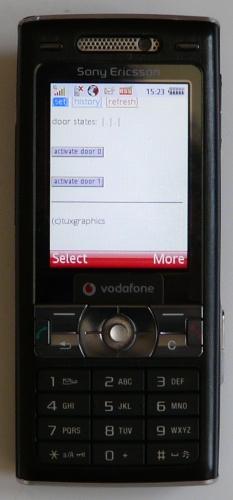
|
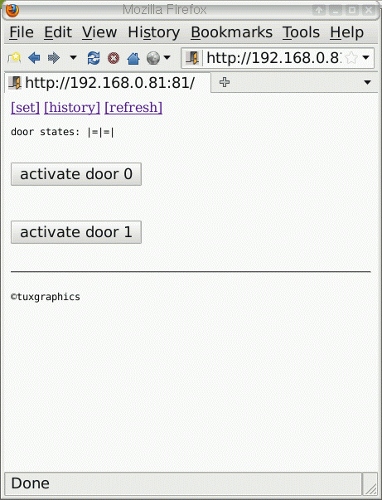
|
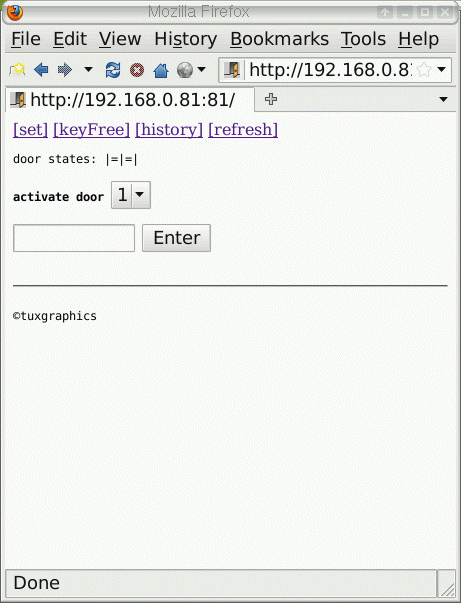
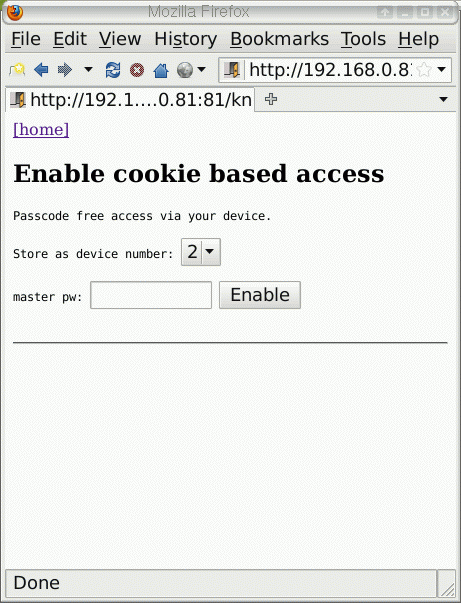
|
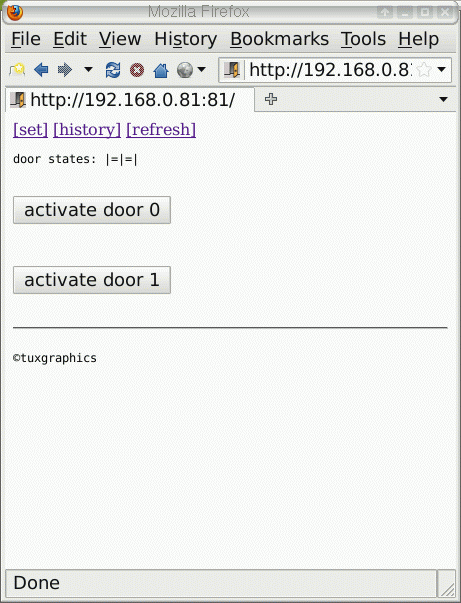
|
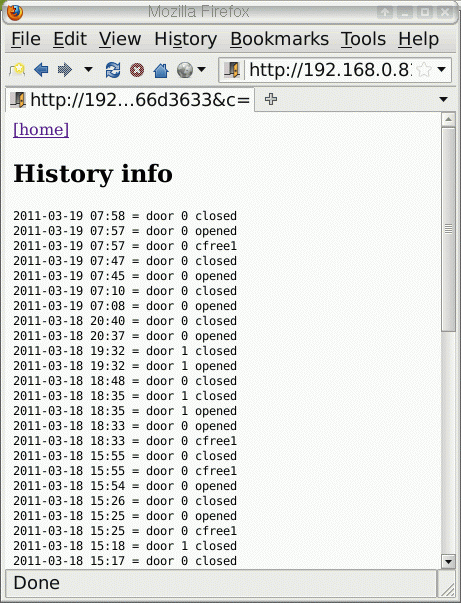
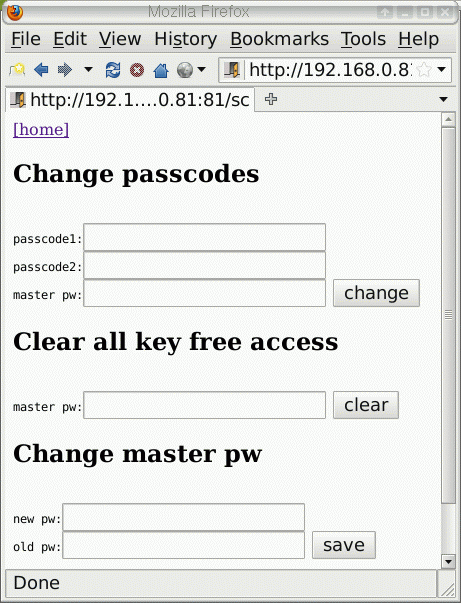
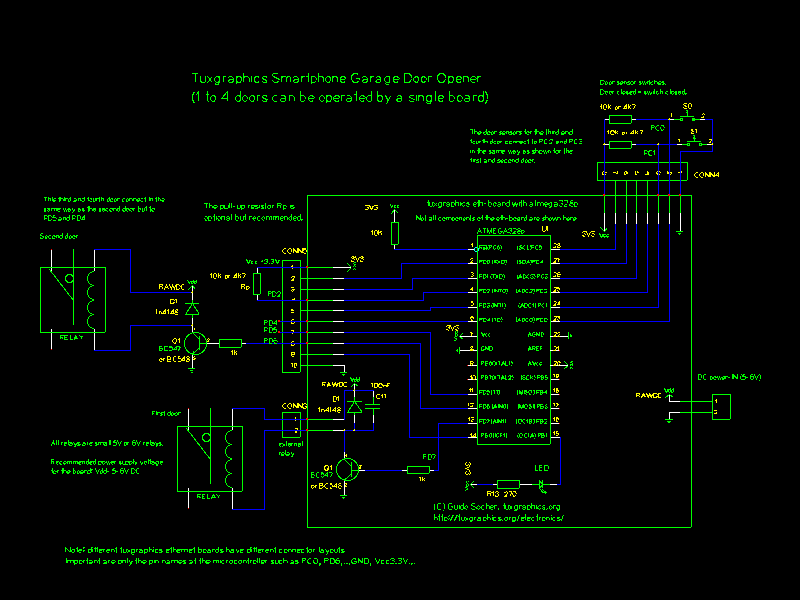
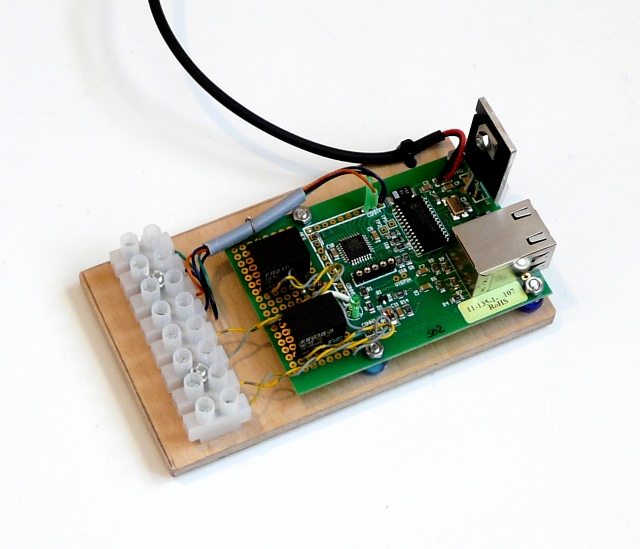
 A reed contact and a magnet. This works well for doors that
have mechanics with tolerances of up to 0.5cm, 0.2inch. I recommend
to use strong magnets to allow for a good air gap between reed contact and
magnet (e.g rare earth magnets).
A reed contact and a magnet. This works well for doors that
have mechanics with tolerances of up to 0.5cm, 0.2inch. I recommend
to use strong magnets to allow for a good air gap between reed contact and
magnet (e.g rare earth magnets).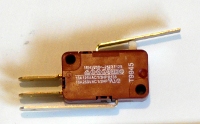 A snap action limit switch and a bicycle spoke or some other elastic wire.
This is the best option as it can compensate for large mechanical
tolerances.
A snap action limit switch and a bicycle spoke or some other elastic wire.
This is the best option as it can compensate for large mechanical
tolerances.


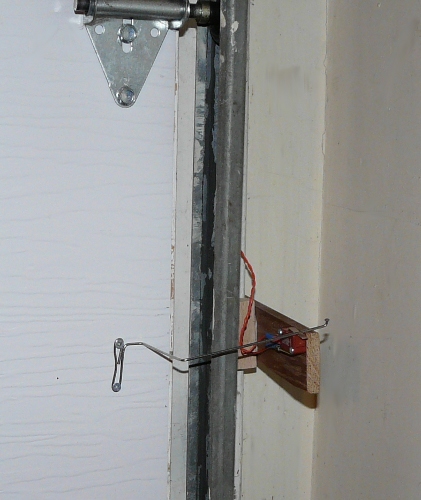
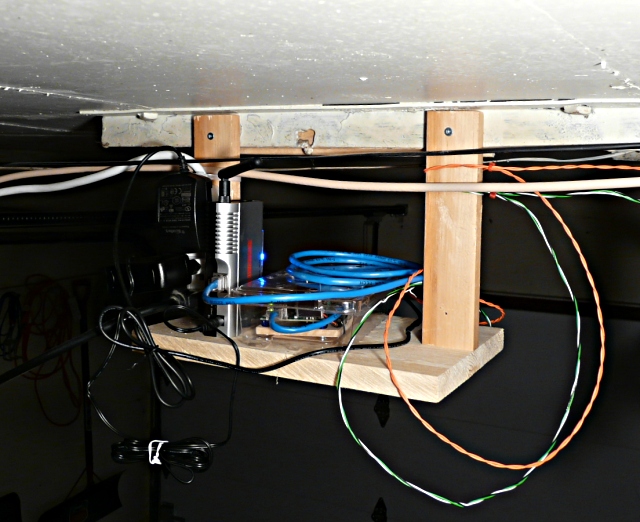

|
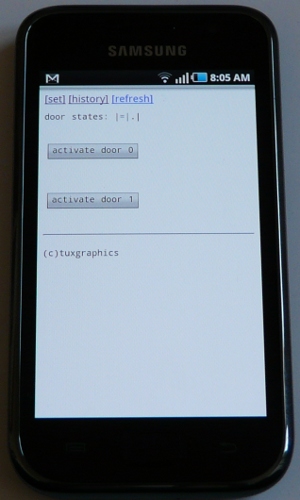
|
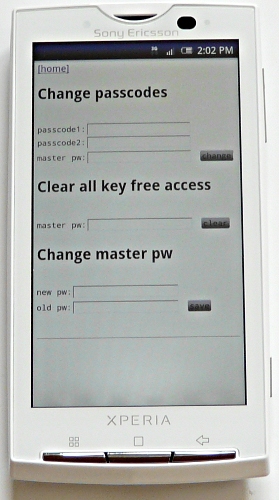
|
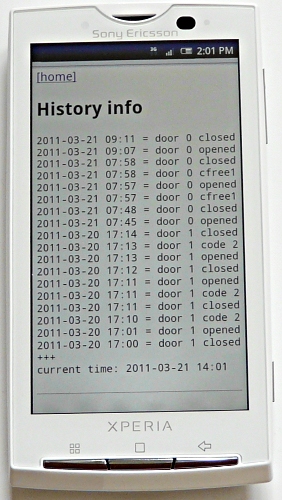
|
2011-05-14, generated by tuxgrparser version 2.57